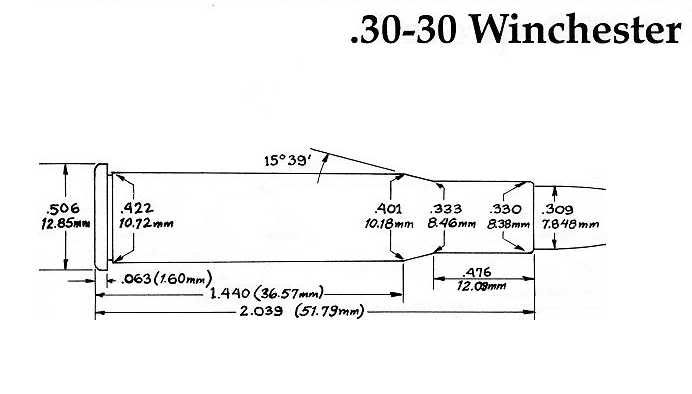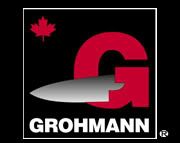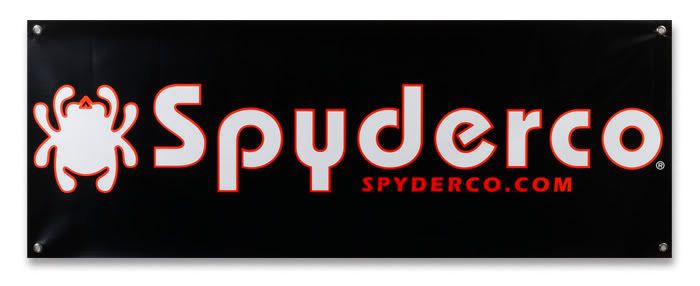John Kort (whose book on the .30 WCF is eagerly awaited) reports that "Back in the early 1900's, UMC & Savage offered a .30-30 MINIATURE cartridge. It consisted of a 100 gr. full patch bullet @ 1,400 fps. The powder used was "Infallable" in 8 gr, doses. Infallable was very close in burning rate to Unique. 7 gr. of Unique should put you pretty close to 1,400 f.p.s. with the 86 gr. bullet. With 110 gr. .30 Carbine bullets in my .30-30, 8 gr. of Unique chronographed @ 1,430 fps and was very accurate with 50 yard groups in the 1" range. 8 gr. W231 also shot very well."
27 gr. of IMR 3031 was the old "trapper" load we've discussed here. I've also used 8-10 gr. of IMR SR4759. One should use an 85 gr. FMJ bullet which now may be hard to find. The Sierra 85 gr. SP works just about as well but does tear up game more than the FMJ. One has to note that you should consult the law where you hunt. Many jurisdictions prohibit use of FMJ bullets and some prohibit the use of center-fire rifles for hunting small game.
The truth is that most any powder with a burn rate closely approximating IMR 3031 will work with the 150 and 170 gr. bullets. This is good for the reloader in these times when you use what you can get. Likewise, primer type or manufacturer is not critical. In either case, where substitutions are made of powder and/or primer, one need only work up to the standard velocity and continue on. This applies to bullets as well with any cup-and-core bullet from Remington, Winchester, Hornady, Speer or Sierra can be substituted without concern. Don't do this with all copper bullets in those states that may have banned lead in bullets. Use of those bullets with this data may result in excessive pressures.
| Bullet | Weight | Powder | Charge Weight | Velocity | Energy |
| Hornady JFP, Speer JFP or Sierra JFP | 170 | IMR 3031 | 2100 | 1665 | |
| Sierra JRN | 85 | IMR 3031 | 1877 | 665 | |
| Hornady SP | 110 | Unique | 1430 | 500 | |
| Sierra JRN | 85 | Unique | 1400 | 479 | |
| Beartooth | 149 | IMR SR4759 | 1000 | 244 |
I don't believe "better" is always more, nor is it always less. "Better" is closer to ideal. I think for some folks on a budget, needing to use their deer rifle for squirrel and home defense the .357 Mag carbine might be closer to ideal or "better". For those in big bear country a hot-loaded .45-70 might be better (I'm sticking to leverguns here, just 'cause). For those who mostly shoot varmints and small game but who are only going to shoot deer in their garden from the outhouse a .32-20 might be "better". Here in the east of the Mississippi, the .30-30 (or a cartridge that performs very much like it does) comes very close to ideal. Here in Virginia we can do just about everything we need doing including killing big black bear or an elk that has strayed across the border from Kentucky's herd.
One thing the .30-30 will now forever be to many is old and maybe boring. It will never be new again. It will never be cutting edge again. Neither will I.
Note that current manuals show a max of 29 gr. of IMR 3031. This load is safe in all my rifles but may not be safe in yours. Work up and follow the manual.























3 comments:
Hobie,
Looks like a fat finger mistake on the velocity of the 85 grainer using 3031. Shouldn't it be 2280?
Thanks for pointing that out. Fat head more likely. Corrected to 1877 fps for 665 fpe.
You're right, Hobie, about the old load of 30 grains of IMR 3031 with a 170 grain bullet. Three or four years ago, IMR got a batch of 3031 that was just a tiny bit faster than what we're used to. The load data had to be reduced just a tad.
When I'm loading that bullet in the .30-30 with a new jug of 3031, I start at about 28 grains and work up.
Post a Comment